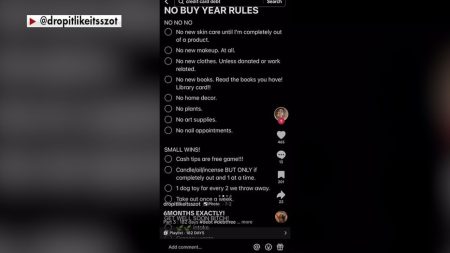The average 30-year fixed-rate mortgage rate increased to 6.43% for the week ending April 27, 2023, according to the latest Freddie Mac data. That’s up from last week when it averaged 6.39%. A year ago, it averaged 5.10%.
The average 15-year fixed-rate mortgage rate decreased to 5.71%, down from last week when it averaged 5.76%. Last year, it averaged 4.40%.
“The 30-year fixed-rate mortgage increased modestly for the second straight week, but with the rate of inflation decelerating rates should gently decline over the course of 2023,” Freddie Mac Chief Economist Sam Khater said.
To lower inflation, the Federal Reserve has been raising interest rates since last year. And it increased rates by 25 basis points in March.
Inflation increased 5% year-over-year in March, based on the inflation-measuring Consumer Price Index (CPI). That marked the smallest 12-month increase since the period ending May 2021, according to the Bureau of Labor Statistics (BLS).
In addition, the U.S. economy grew 1.1% in the first quarter, according to the advanced estimate released Thursday by the Bureau of Economic Analysis (BEA). This signaled a turn from the 2022 fourth quarter’s 2.6% increase and the third quarter’s 3.2% spike.
Nonetheless, some economists believe the Fed will raise interest rates by 25 basis points in May.
“The Fed has made some progress cooling inflation with rate hikes but there’s still work to be done,” Redfin Chief Economist Daryl Fairweather said in a statement. “Even if the Fed chooses not to hike interest rates next month, which would likely bring down mortgage rates, the limited supply of homes for sale would remain a major obstacle for would-be buyers.”
Homebuyers and homeowners can still find suitable mortgage rates or refinance rates by shopping around. You can visit Credible to compare options from different mortgage lenders at once, without affecting your credit score.
FINANCIAL STRESS HAS BIGGEST IMPACT ON AMERICANS’ MENTAL HEALTH: SURVEY
Home sale prices see biggest drop in over a decade
Despite recent mortgage rate increases, median home prices have dropped in the U.S., according to one report.
The median home sale price fell 2.6% annually during the four weeks ending April 16, dropping to $366,200, according to real estate brokerage Redfin. This marked the sharpest decline in more than a decade, Redfin said.
In fact, home-sale prices fell in 30 of the 50 most populous U.S. metro areas, Redfin reported. Here are the cities that experienced the most significant year-over-year declines in home-sale prices:
- Austin, Texas (-15.1%)
- Oakland, California (-11.5%)
- Sacramento, California (-9.5%)
- San Francisco, California (-9.2%)
- Seattle, Washington (-9.1%)
“Incoming data suggest the housing market has stabilized from a sales and house price perspective,” Khater said. “The prospect of lower mortgage rates for the remainder of the year should be welcome news to borrowers who are looking to purchase a home.”
If you’re ready to become a homeowner, it can help to shop around for the best mortgage rates. Visit Credible to get your personalized rate in minutes.
CONDITIONS IMPROVE FOR BUYING A HOME, REPORT SAYS
Mortgage delinquency rates drop to near-record low
Despite increasing mortgage rates, mortgage delinquency rates in the U.S. have dropped, according to a report by CoreLogic.
In fact, 3% of all mortgages in February were in delinquency, defined as 30 or more days past due, CoreLogic reported. This marked a decrease from the 3.4% in February 2022.
“The national mortgage delinquency rate has barely changed year over year since the spring of 2022, indicating a fairly stable economy in which most borrowers are able to pay their mortgages on time,” CoreLogic said in its report. “Similarly, the U.S. foreclosure rate has held steady at 0.3% for a year.”
In addition, only 1.2% of mortgages were in serious delinquency, defined as 90 days or more past due, CoreLogic said. That’s down from 1.7% in February 2022 and a high of 4.3% in August 2020.
“Despite a small monthly increase in the share of mortgage payments that were one month late in February, early-stage delinquencies remained unchanged year over year,” CoreLogic Principal Economist Molly Boesel said. “February’s early-stage delinquency rate was historically low and primarily driven by a strong job market. However, the possibility of a recession that would raise the U.S. unemployment rate could slightly erode the current strong mortgage performance situation in the coming months.”
If you’re looking to reduce the costs of homebuying, it can help to compare mortgage rates from different lenders. Visit Credible to speak with a mortgage expert and get your questions answered.
KNOWING HOW INSURANCE RATES ARE CALCULATED COULD SAVE DRIVERS MONEY: SURVEY
Have a finance-related question, but don’t know who to ask? Email The Credible Money Expert at [email protected] and your question might be answered by Credible in our Money Expert column.
Read the full article here











